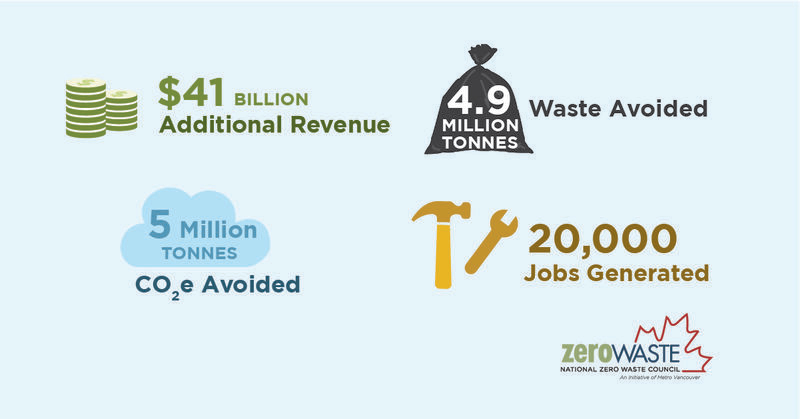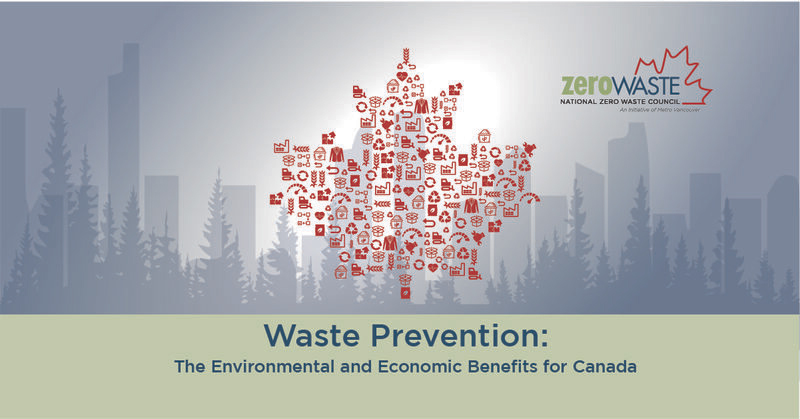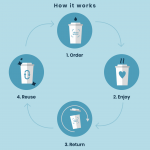Implementing waste prevention strategies in a handful of Canadian sectors could create tens of thousands of jobs and billions in revenue, while significantly reducing greenhouse gas emissions and waste each year, according to a new report released today by the National Zero Waste Council.
Waste Prevention: The Environmental and Economic Benefits for Canada presents 15 specific waste-prevention business cases for six key sectors of the Canadian economy, and outlines the opportunities for positive environmental, social and economic impacts that would accrue by addressing waste at its source.
“Waste prevention must be part of the environmental conversation in Canada, since Canadians produce the most waste in the world on a per-capita basis,” said Jack Froese, Chair of the National Zero Waste Council. “This report is the first of its kind for Canada, and is a first of many steps toward waste prevention being realized in this country. We hope to spur discussion and action by highlighting the actions businesses and governments can take to prevent waste and promote the circular economy.”
The report explores the integral role waste prevention plays in the circular economy and presents the opportunities available to Canadian businesses. Waste prevention, also known as reduction-at-source, ensures waste is not created in the first place and is the initial step in the waste-management hierarchy.
The report outlines 15 specific waste-prevention business cases for the following sectors: construction, manufacturing, healthcare, agriculture, plastics and retail. These sectors were chosen for the large amount of waste they produce and the viability of waste-prevention interventions. Each case is evaluated based on its potential to reduce greenhouse gas emissions, create jobs, prevent waste and provide other benefits, and is based on effective strategies, such as modular construction, reverse logistics and design for reuse, repair and disassembly.

If widely implemented by government and industry, the cases presented could have profound impacts on the environment and economy, potentially preventing five million tonnes of CO2-equivalent emissions and 4.9 million tonnes of waste annually (including 1.1 million tonnes of plastics), while creating about 20,000 jobs and $41 billion in additional revenue each year.
“These business cases represent a shift away from ‘business as usual’ and involve using new technologies, designing products differently, expanding goods-as-a-service models and finding new markets for underutilized outputs,” said National Zero Waste Council Vice-Chair Jim Downham. “By providing clear business cases, the National Zero Waste Council seeks to equip business and government decision makers with the information they need to make investment and policy decisions around waste prevention.”
More Information
Read the full report: http://www.nzwc.ca/Documents/NZWC-WastePreventionReport.pdf Read the report overview: http://www.nzwc.ca/Documents/NZWC-WastePreventionReportOverview.pdfView the infographic: http://www.nzwc.ca/Documents/WPInfographic.pdf
About the National Zero Waste Council
The National Zero Waste Council, an initiative of Metro Vancouver, is leading Canada’s transition to a circular economy by bringing together governments, businesses and NGOs to advance a waste prevention agenda that maximizes economic opportunities for the benefit of all Canadians.











